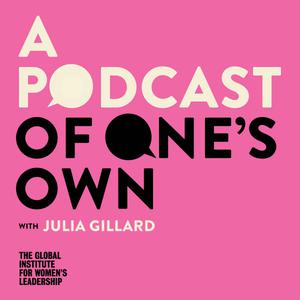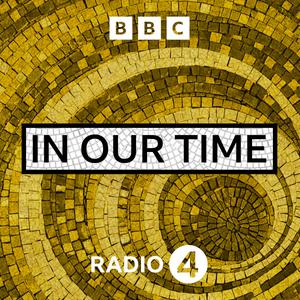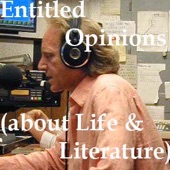
New Books in Language
Interviews with Scholars of Language about their New Books
- 51 minutes 27 secondsConstantine R. Campbell, "Basics of Verbal Aspect in Biblical Greek" (Zondervan Academic, 2024)
Verbal aspect in the Greek language has been a topic of significant debate in recent scholarship. The majority of scholars now believe that an understanding of verbal aspect is even more important than verb tense (past, present, etc.). Yet there still are no alternative accessible textbooks, both in terms of level and price. In the second edition, Constantine R. Campbell investigates the function of verbal aspect within the New Testament Greek narrative in light of the last fifteen years of the latest scholarship.
In Basics of Verbal Aspect in Biblical Greek, Second Edition, Campbell has done a marvelous job in this book of simplifying the concept without getting caught up using terms of linguistics that only experts can understand. The book includes expanded and updated discussion, revised exercises, an answer key, a glossary of key concepts, an appendix covering space and time, and an index of Scriptures cited. Professors and students, at both the undergraduate and graduate levels, will use this is as a supplemental text in both beginning and advanced Greek courses. Pastors that study the Greek text will also appreciate this resource as a supplement to their preaching and teaching.
Constantine Campbell is Professor and Research Director at the Sydney College of Divinity, and previously served as Professor of New Testament studies at Trinity Evangelical Divinity School in Chicago and Moore Theological College in Sydney. His first doctorate is in ancient Greek language and linguistics (Macquarie University, 2007). Campbell is the author of 19 books, with focus on ancient Greek, New Testament interpretation, and the apostle Paul. His book Paul and Union with Christ was the 2014 Christianity Today Book of the Year in Biblical Studies. His latest releases are Reading Paul as Christian Scripture (Baker Academic, 2024) and Basics of Verbal Aspect in Biblical Greek, second edition (Zondervan Academic, 2024). Campbell was co-chair of the Biblical Greek Language and Linguistics section of the Society of Biblical Literature, and is an Associate Editor of the Zondervan Exegetical Commentary series. He is an elected member of the preeminent scholarly guild, Studiorum Novi Testamenti Societas. Campbell is also a highly regarded jazz saxophonist and is a visiting instructor at The Australian National University School of Music. His second doctorate explores the fusion of jazz and traditional Greek urban music (Australian National University, 2024). He is the presenter of two documentary series on the apostles Paul and Peter. Campbell lives in Canberra, Australia.
Jonathon Lookadoo is Associate Professor at the Presbyterian University and Theological Seminary in Seoul, South Korea. While his interests range widely over the world of early Christianity, he is the author of books on the Epistle of Barnabas, Ignatius of Antioch, and the Shepherd of Hermas, including The Christology of Ignatius of Antioch (Cascade, 2023).
Learn more about your ad choices. Visit megaphone.fm/adchoices
Support our show by becoming a premium member! https://newbooksnetwork.supportingcast.fm/language
25 January 2025, 9:00 am - 47 minutes 33 secondsMultilingual Crisis Communication
In this episode of the Language on the Move Podcast, Tazin Abdullah speaks with Dr. Jia Li, Professor of Applied Sociolinguistics at Yunnan University, China.
Tazin and Jia discuss crisis communication in a linguistically diverse world and a new book co-edited by Dr. Jia Li and Dr. Jie Zhang called Multilingual Crisis Communication: Insights from China (Routledge, 2024) that gives us insights into the lived experiences of linguistic minorities affected during the Covid-19 pandemic.
Multilingual Crisis Communication is the first book to explore the lived experiences of linguistic minorities in crisis-affected settings in the Global South, particularly during the Covid-19 pandemic. China has been selected as a case of inquiry for multilingual crisis communication because of its high level of linguistic diversity. Taking up critical sociopolitical approaches, this book conceptualizes multilingual crisis communication from three dimensions: identifying communication barriers, engaging communication repertoires, and empowering communication justice.
Comprising eight main chapters, along with an introduction and an epilogue, this edited book is divided into three parts in terms of the demographic and social conditions of linguistic minorities, as indigenous, migrant, and those with communicative disabilities. This book brings together a range of critical perspectives of sociolinguistic scholars, language teachers, and public health workers. Each team of authors includes at least one member of the research community with many years of field work experience, and some of them belong to ethnic minorities. These studies can generate new insights for enhancing the accessibility and effectiveness of multilingual crisis communication.
This book will be of interest to academics and postgraduate students in the fields of multilingualism, intercultural communication, translation and interpreting studies, and public health policy.
For additional resources, show notes, and transcripts, go here.
Learn more about your ad choices. Visit megaphone.fm/adchoices
Support our show by becoming a premium member! https://newbooksnetwork.supportingcast.fm/language
21 January 2025, 9:00 am - 1 hour 1 minuteThe Politics of Language Oppression in Tibet
In this episode of the Language on the Move Podcast, Tazin Abdullah speaks with Dr. Gerald Roche, Associate Professor in the Department of Politics, Media, and Philosophy at La Trobe University, Melbourne, Australia and head of research for the Linguistic Justice Foundation.
Tazin and Gerald discuss his research into language oppression and focus on his recent book The Politics of Language Oppression in Tibet (Cornell UP, 2024).
In The Politics of Language Oppression in Tibet, Gerald Roche sheds light on a global crisis of linguistic diversity that will see at least half of the world's languages disappear this century.
Roche explores the erosion of linguistic diversity through a study of a community on the northeastern Tibetan Plateau in the People's Republic of China. Manegacha is but one of the sixty minority languages in Tibet and is spoken by about 8,000 people who are otherwise mostly indistinguishable from the Tibetan communities surrounding them. Recently, many in these communities have switched to speaking Tibetan, and Manegacha faces an uncertain future.
The author uses the Manegacha case to show how linguistic diversity across Tibet is collapsing under assimilatory state policies. He looks at how global advocacy networks inadequately acknowledge this issue, highlighting the complex politics of language in an inter-connected world. The Politics of Language Oppression in Tibet broadens our understanding of Tibet and China, the crisis of global linguistic diversity, and the radical changes needed to address this crisis.
For additional resources, show notes, and transcripts, go here.
Learn more about your ad choices. Visit megaphone.fm/adchoices
Support our show by becoming a premium member! https://newbooksnetwork.supportingcast.fm/language
14 January 2025, 9:00 am - 50 minutes 55 secondsS4E20 Cosmic Connections: A Conversation with Charles Taylor
This week on Madison’s Notes, we sit down with philosopher and author Charles Taylor to discuss his latest work, Cosmic Connections: Poetry in the Age of Disenchantment (Belknap Press, 2024) . Taylor dives into the profound role of poetry in reconnecting us to a sense of wonder and meaning in a world often characterized by disillusionment. Drawing on his vast expertise in philosophy, Taylor explores how poetry serves as a bridge between the mundane and the transcendent, offering a counterpoint to the rational, scientific worldview that dominates modern life. This conversation offers a deep dive into the power of language, imagination, and the poetic tradition in addressing the spiritual and existential challenges of our time. Join us for a reflective exploration of how poetry can restore enchantment in an age of disenchantment.
Madison’s Notes is the podcast of Princeton University’s James Madison Program in American Ideals and Institutions.
Contributions to and/or sponsorship of any speaker does not constitute departmental or institutional endorsement of the specific program, speakers or views presented.
Learn more about your ad choices. Visit megaphone.fm/adchoices
Support our show by becoming a premium member! https://newbooksnetwork.supportingcast.fm/language
8 January 2025, 9:00 am - 39 minutes 25 secondsAndrew S. Latham, "Hey! Listen!: Hypertext Rhetoric and The Legend of Zelda" (McFarland, 2024)
How does analyzing video games as hypertexts expand the landscape of research for video game rhetoricians and games studies scholars? This is the first book to focus on how hypertext rhetoric impacts the five canons of rhetoric, and to apply that hypertext rhetoric to the study of video games. It also explores how ludonarrative agency is seized by players seeking to express themselves in ways that game makers did not necessarily intend when making the games that players around the world enjoy.
Hey! Listen!: Hypertext Rhetoric and The Legend of Zelda (McFarland, 2024) takes inspiration from The Legend of Zelda, a series which players all over the world have spent decades deconstructing through online playthroughs, speedruns, and glitch hunts. Through these playthroughs, players demonstrate their ability to craft their own agency, independent of the objectives built by the makers of these games, creating new rhetorical situations worthy of analysis and consideration.
Rudolf Thomas Inderst (*1978) enjoys video games since 1985. He received a master’s degree in political science, American cultural studies as well as contemporary and recent history from Ludwig-Maximilians-University, Munich and holds two PhDs in game studies (LMU & University of Passau). Currently, he's teaching as a professor for game design at the IU International University for Applied Science, has submitted his third dissertation at the University of Vechta, holds the position as lead editor at the online journal Titel kulturmagazin for the game section, hosts the German local radio show Replay Value and is editor of the weekly game research newsletter DiGRA D-A-CH Game Studies Watchlist.
Learn more about your ad choices. Visit megaphone.fm/adchoices
Support our show by becoming a premium member! https://newbooksnetwork.supportingcast.fm/language
5 January 2025, 9:00 am - 39 minutes 31 secondsLanguage Rights in a Changing China
In this episode of the Language on the Move Podcast, Brynn Quick speaks with Dr. Alexandra Grey about Dr. Grey’s book entitled Language Rights in a Changing China: A National Overview and Zhuang Case Study (De Gruyter, 2021).
China has had constitutional minority language rights for decades, but what do they mean today? Answering with nuance and empirical detail, this book examines the rights through a sociolinguistic study of Zhuang, the language of China’s largest minority group. The analysis traces language policy from the Constitution to local government practices, investigating how Zhuang language rights are experienced as opening or restricting socioeconomic opportunity. The study finds that language rights do not challenge ascendant marketised and mobility-focused language ideologies which ascribe low value to Zhuang. However, people still value a Zhuang identity validated by government policy and practice.
Rooted in a Bourdieusian approach to language, power and legal discourse, this is the first major publication to integrate contemporary debates in linguistics about mobility, capitalism and globalization into a study of China’s language policy.
This book came out in May 2021 after almost a decade of Alex’s doctoral and postdoctoral work. Her doctoral dissertation was recognised as the best dissertation on the sociology of language, internationally, through the 2018 Joshua A. Fishman Award.
For additional resources, show notes, and transcripts, go here.
Learn more about your ad choices. Visit megaphone.fm/adchoices
Support our show by becoming a premium member! https://newbooksnetwork.supportingcast.fm/language
31 December 2024, 9:00 am - 1 hour 11 minutesWhiteness, Accents, and Children's Media
In this episode of the Language on the Move podcast, Brynn Quick speaks with Dr. Laura Smith-Khan about language and accents in children’s media, from Octonauts to Disney to Bluey, and they investigate what a choice as seemingly banal as a character’s accent has to do with whiteness, standard language ideology, and securing a nation’s borders. They then reflect on Laura’s most recently published paper (with co-authors Distinguished Professor Ingrid Piller and Dr. Hanna Torsh) and how accents and language are used to shape discourses around migration and belonging.
For additional resources, show notes, and transcripts, go here.
Learn more about your ad choices. Visit megaphone.fm/adchoices
Support our show by becoming a premium member! https://newbooksnetwork.supportingcast.fm/language
24 December 2024, 9:00 am - 27 minutes 56 secondsCreaky Voice in Australian English
In this episode of the Language on the Move Podcast, Brynn Quick speaks with Dr. Hannah White, a Postdoc researcher at Macquarie University in the Department of Linguistics. She completed her doctoral research in 2023 with a thesis entitled “Creaky Voice in Australian English”.
Brynn speaks to Dr. White about this research along with a 2023 paper that she co-authored entitled “Convergence of Creaky Voice Use in Australian English.” This paper and the entirety of Hannah’s thesis examines the use of creaky voice, or vocal fry, in speech.
For additional resources, show notes, and transcripts, go here.
Learn more about your ad choices. Visit megaphone.fm/adchoices
Support our show by becoming a premium member! https://newbooksnetwork.supportingcast.fm/language
17 December 2024, 9:00 am - 1 hour 1 minuteFatima Rajina, "British Bangladeshi Muslims in the East End: The Changing Landscape of Dress and Language" (Manchester UP, 2024)
Popular discourse around British Muslims has often been dominated by a focus on Muslim women and their sartorial choices, particularly the hijab and niqab. British Bangladeshi Muslims in the East End: The Changing Landscape of Dress and Language (Manchester UP, 2024) by Dr. Fatima Rajina takes a different angle and focuses on Muslim men, examining how factors like the global war on terror influenced and changed their sartorial choices and use of language. The book denaturalises the ubiquitous and deeply problematic security lens through which knowledge of Muslims has been produced in the past two decades.
British Bangladeshi Muslims in the East End offers an alternative reading of these communities and how their political subjectivities emerge. Drawing on historical events, field research and existing academic work, the book aims to address the multiple ways British Bangladeshi Muslim men and women create their relationship with dress and language. This is the first book to empirically examine how dress and language shape the identities of British Bangladeshi Muslims in the East End, using in-depth analysis useful for anyone interested in the study of British Muslims broadly. While the book focuses on a specific Muslim community, the emerging themes demonstrate the interconnectedness of Muslims locally and globally and how they manifest their identities through dress and language.
This interview was conducted by Dr. Miranda Melcher whose new book focuses on post-conflict military integration, understanding treaty negotiation and implementation in civil war contexts, with qualitative analysis of the Angolan and Mozambican civil wars.
Learn more about your ad choices. Visit megaphone.fm/adchoices
Support our show by becoming a premium member! https://newbooksnetwork.supportingcast.fm/language
30 November 2024, 9:00 am - 41 minutes 16 secondsSupporting Multilingual Families to Engage with their Children’s Schooling
How can school communications become more accessible to multilingual families? In this episode of the Language on the Move podcast, Dr Agnes Bodis talks to Professor Margaret Kettle about the Multilingual Glossary of School-based Terms. This is list of school-related terms selected and translated to help multilingual families connect with schools. The research-based glossary was developed jointly with the Queensland Department of Education, Education Queensland school personnel, Multicultural Australia, and community group members and families.
For additional resources, show notes, and transcripts, go here.
Learn more about your ad choices. Visit megaphone.fm/adchoices
Support our show by becoming a premium member! https://newbooksnetwork.supportingcast.fm/language
19 November 2024, 9:00 am - 1 hourHannah Pollin-Galay, "Occupied Words: What the Holocaust Did to Yiddish" (U Pennsylvania Press, 2024)
The Holocaust radically altered the way many East European Jews spoke Yiddish. Finding prewar language incapable of describing the imprisonment, death, and dehumanisation of the Shoah, prisoners added or reinvented thousands of Yiddish words and phrases to describe their new reality. These crass, witty, and sometimes beautiful Yiddish words – Khurbn Yiddish, or “Yiddish of the Holocaust” – puzzled and intrigued the East European Jews who were experiencing the metamorphosis of their own tongue in real time. Sensing that Khurbn Yiddish words harboured profound truths about what Jews endured during the Holocaust, some Yiddish speakers threw themselves into compiling dictionaries and glossaries to document and analyse these new words. Others incorporated Khurbn Yiddish into their poetry and prose. In Occupied Words: What the Holocaust Did to Yiddish (University of Pennsylvania Press, 2024), Dr. Hannah Pollin-Galay explores Khurbn Yiddish as a form of Holocaust memory and as a testament to the sensation of speech under genocidal conditions.
Occupied Words: What the Holocaust Did to Yiddish (U Pennsylvania Press, 2024) investigates Khurbn Yiddish through the lenses of cultural history, philology, and literary interpretation. Analysing fragments of language consciousness left behind from the camps and ghettos alongside the postwar journeys of three intellectuals—Nachman Blumental, Israel Kaplan and Elye Spivak—Dr. Pollin-Galay seeks to understand why people chose Yiddish lexicography as a means of witnessing the Holocaust. She then turns to the Khurbn Yiddish words themselves, focusing on terms related to theft, the German-Yiddish encounter and the erotic female body. Here, the author unearths new perspectives on how Jews experienced daily life under Nazi occupation, while raising questions about language and victimhood. Lastly, the book explores how writers turned ghetto and camp slang into art—highlighting the poetry and fiction of K. Tzetnik (Yehiel Di-Nur) and Chava Rosenfarb. Ultimately, Occupied Words speaks to broader debates about cultural genocide, asking how we might rethink the concept of genocide through the framework of language.
This interview was conducted by Dr. Miranda Melcher whose new book focuses on post-conflict military integration, understanding treaty negotiation and implementation in civil war contexts, with qualitative analysis of the Angolan and Mozambican civil wars.
Learn more about your ad choices. Visit megaphone.fm/adchoices
Support our show by becoming a premium member! https://newbooksnetwork.supportingcast.fm/language
15 November 2024, 9:00 am - More Episodes? Get the App
Your feedback is valuable to us. Should you encounter any bugs, glitches, lack of functionality or other problems, please email us on [email protected] or join Moon.FM Telegram Group where you can talk directly to the dev team who are happy to answer any queries.
 FiveThirtyEight Politics
FiveThirtyEight Politics
 A Podcast of One's Own with Julia Gillard
A Podcast of One's Own with Julia Gillard
 Lexicon Valley from Booksmart Studios
Lexicon Valley from Booksmart Studios
 New Books in Critical Theory
New Books in Critical Theory
 In Our Time
In Our Time
 Entitled Opinions (about Life and Literature)
Entitled Opinions (about Life and Literature)